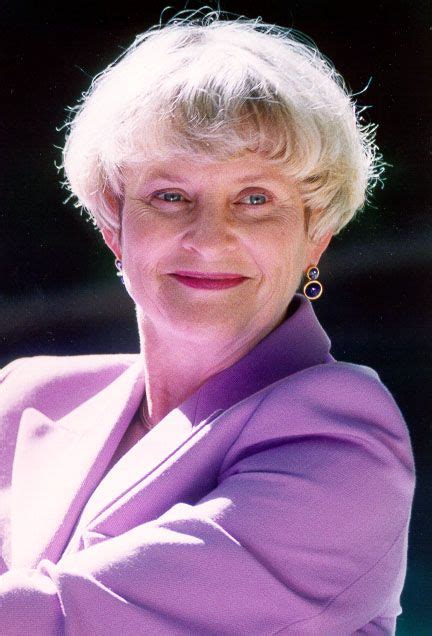A Quote by Dora Russell
What a denial of our humanity that at the centers of power, where decisions are made, there is no room for nurturing, for love, and children. There is more to life than the 'inhuman' work place. It is terrible that many men do not know that: it is a tragedy if women follow them.
Related Quotes
Women are only half responsible for children. Men raise children as much as women do. Until men are as nurturing as women are, and until women are as active outside the home as men are, we won't have democratic families, and therefore we won't have democracy, and we will continue this hierarchical notion of life.
men have their cake and get to eat it too, for while they decree themselves as representative of humanity, women who argue that men are not, are simply showing how little they know! And when men's standards are defined as human standards, then women who assert that women are different, demonstrate how 'inhuman' they are. It is a real 'Catch 22.
Men create their own gods and thus have some slight understanding that they are self-fabricated. Women are much more susceptible, because they are completely oppressed by men; they take men at their word and believe in the gods that men have made up. The situation of women, their culture, makes them kneel more often before the gods that have been created by men than men themselves do, who know what they've done. To this extent, women will be more fanatical, whether it is for fascism or for totalitarianism.
When it comes to politics, we have an internal glass ceiling. We stand as good a chance as a man to win a political race, but women don't want to run at the same rate as men do. People point to the work-family balance issue, but I think it's much more than that. Many women don't have children, or have children who are no longer at home. There are some deeper psychological and emotional issues in play, like the fact that many of us feel like the embarrassment, humiliation and personal demonization in politics are simply more than our hearts can take. What stops us is fear.
Women are often belittled for trying to resurrect these men and bring them back to life and to love. They are in a world that would be even more alienated and violent if caring women did not do the work of teaching men who have lost touch with themselves how to love again. This labor of love is futile only when the men in question refuse to awaken, refuse growth. At this point it is a gesture of self-love for women to break their commitment and move on.
Women know, and so do many men, that two or three children who are wanted, prepared for, reared amid love and stability, and educated to the limit of their ability will mean more for the future of the black and brown races from which they come than any number of neglected, hungry, ill-housed and ill-clothed youngsters. Pride in one's race, as will simple humanity, supports
this view.
In patriarchal culture men are especially inclined to see love as something they should receive without expending effort. More often than not they do not want to do the work that love demands. When the practice of love invites us to enter a place of potential bliss that is at the same time a place of critical awakening and pain, many of us turn our backs on love.
What if not just women, but both men and women, worked smart, more flexible schedules? What if the workplace itself was more fluid than the rigid and narrow ladder to success of the ideal worker? And what if both men and women became responsible for raising children and managing the home, sharing work, love, and play? Could everyone then live whole lives?
































